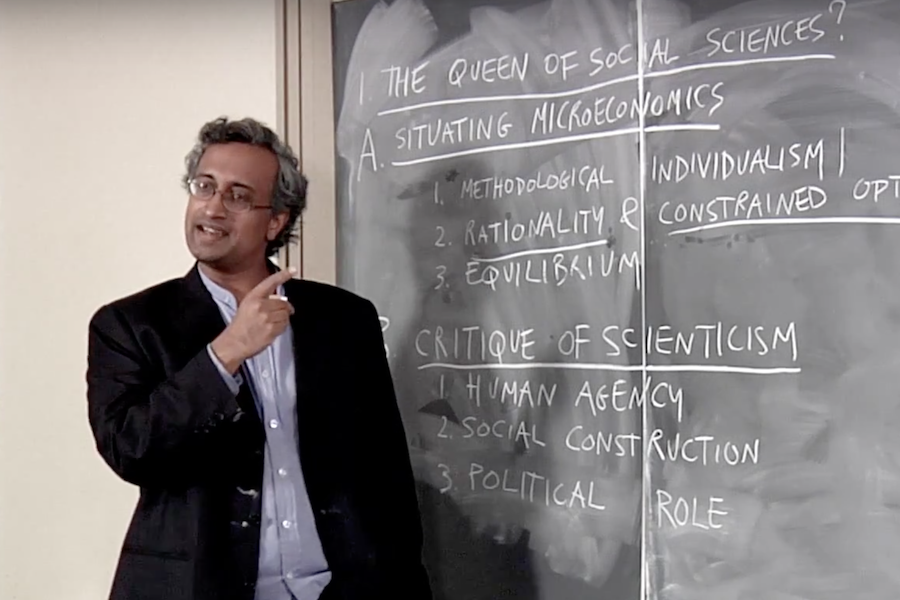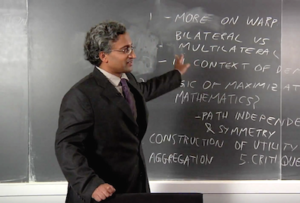The course provides a very different teaching approach than is prevalent in introductory doctoral-level microeconomics courses. It aims to introduce interpretative and contextual content to provide exposure to microeconomics as a domain of unsettled questions and live debates, and not just as a field of applied mathematics. Have the foundations of microeconomics ever been disputed, or are they currently? Are there implicit assumptions or omissions that if made explicit will help us ask other or more interesting questions? Do alternate approaches exist?
We survey a wide range of topics with such questions in mind. Join us for discussions on how to situate microeconomics as a field of social enquiry; whether less restrictive preference assumptions may be needed to provide more adequate models of behavior; the role of formal modeling and mathematics; the significance of real uncertainty for consumers and firms’ behavior; the uses and abuses of the assumption of the hyper-rational “calculating” agent; the place for non-equilibrium reasoning in microeconomics; the efficiency and fairness of markets, the role of diverse ethical frameworks in economic evaluation, and much more.
The course is accompanied by the blog “Reading Mas-Colell”, which we started four years ago, when we first taped our classes on microeconomics at the New School (segments of which will be made available to students who follow the MOOC). The blog presents critical commentary on the major themes of microeconomic theory, through a chapter by chapter examination of the textbook on the subject by Andreu Mas-Colell, Michael Whinston and Jerry Green, widely used in leading Ph.D. programs in economics around the world.
The first-year graduate courses in microeconomics that play a central part of the training of contemporary economists are often considered the most grueling part of the Ph.D. curriculum. Having developed a rigorous “toolkit” of theorems and solutions, many students are left still longing for an understanding of the deeper significance, limitations, of the methods and results, as well as their alternatives. Students in these courses often feel that the seemingly high level of technical sophistication in the exposition of conventional microeconomics does not guarantee the intellectual validity of the endeavor. We strongly believe that a critical approach to the field is needed for students, practitioners and anyone interested in microeconomics and we wish to do our part to making it accessible.
We look forward to meeting more of you in this second iteration and to widening the community of new economic thinkers.







